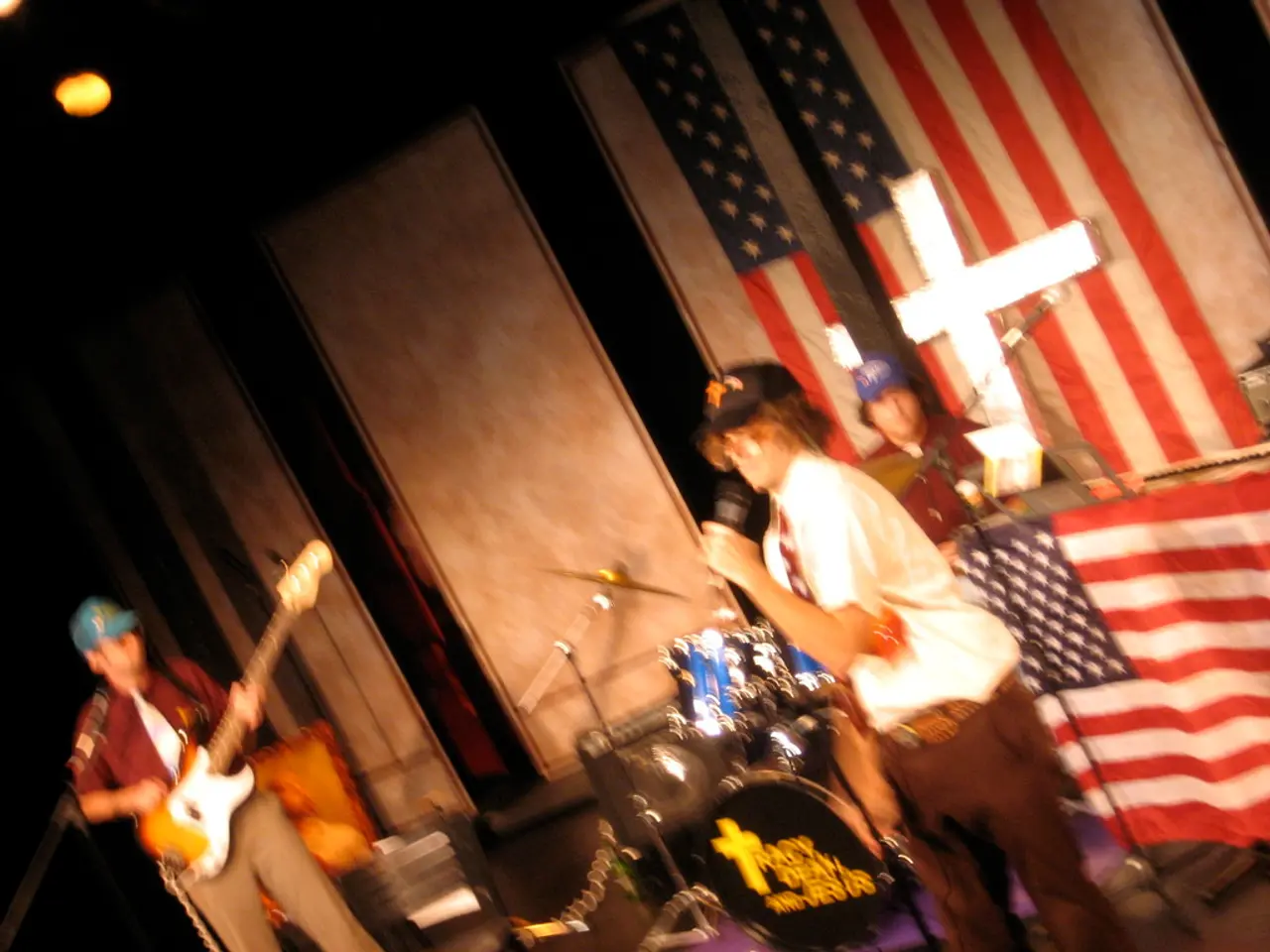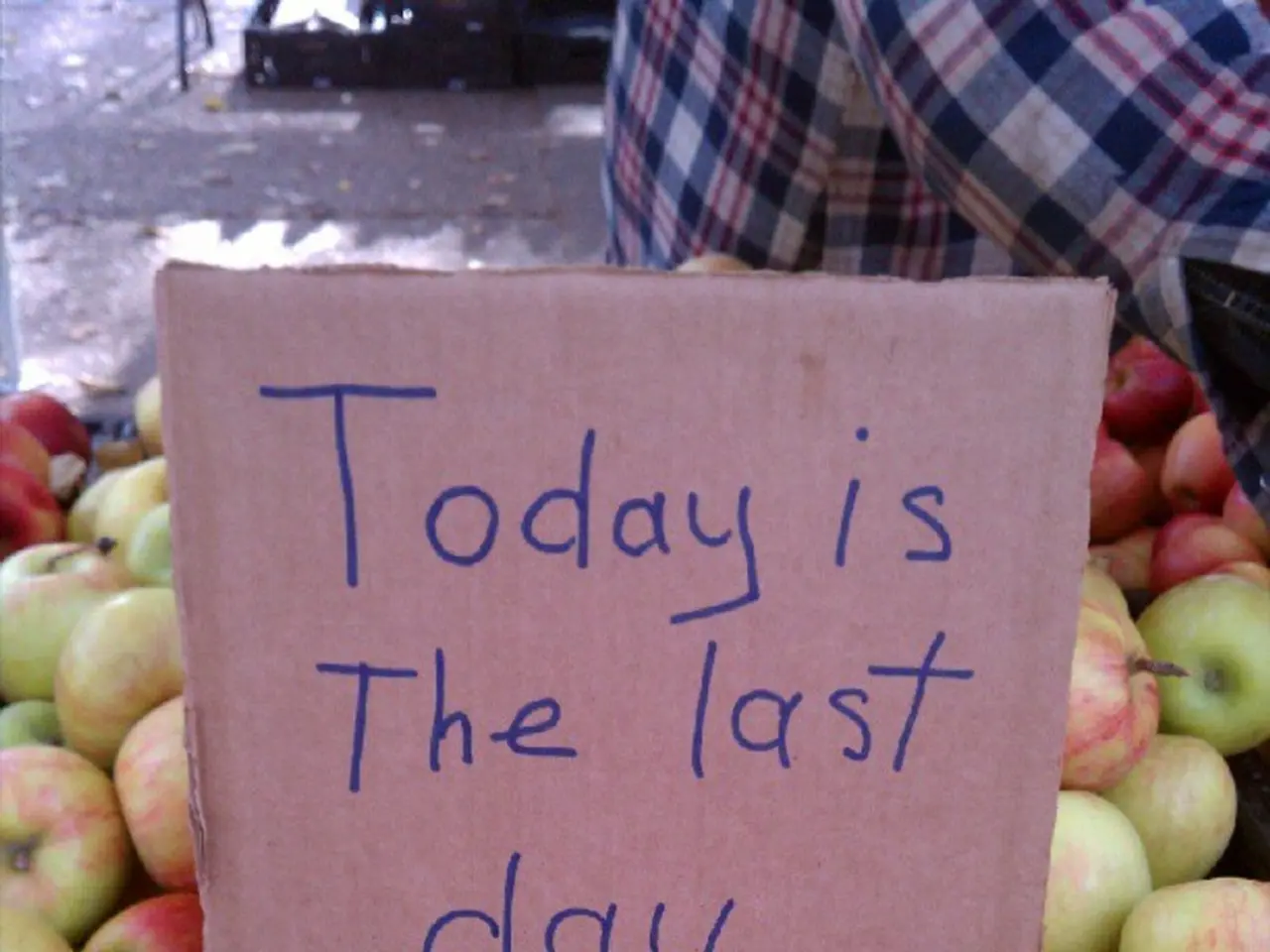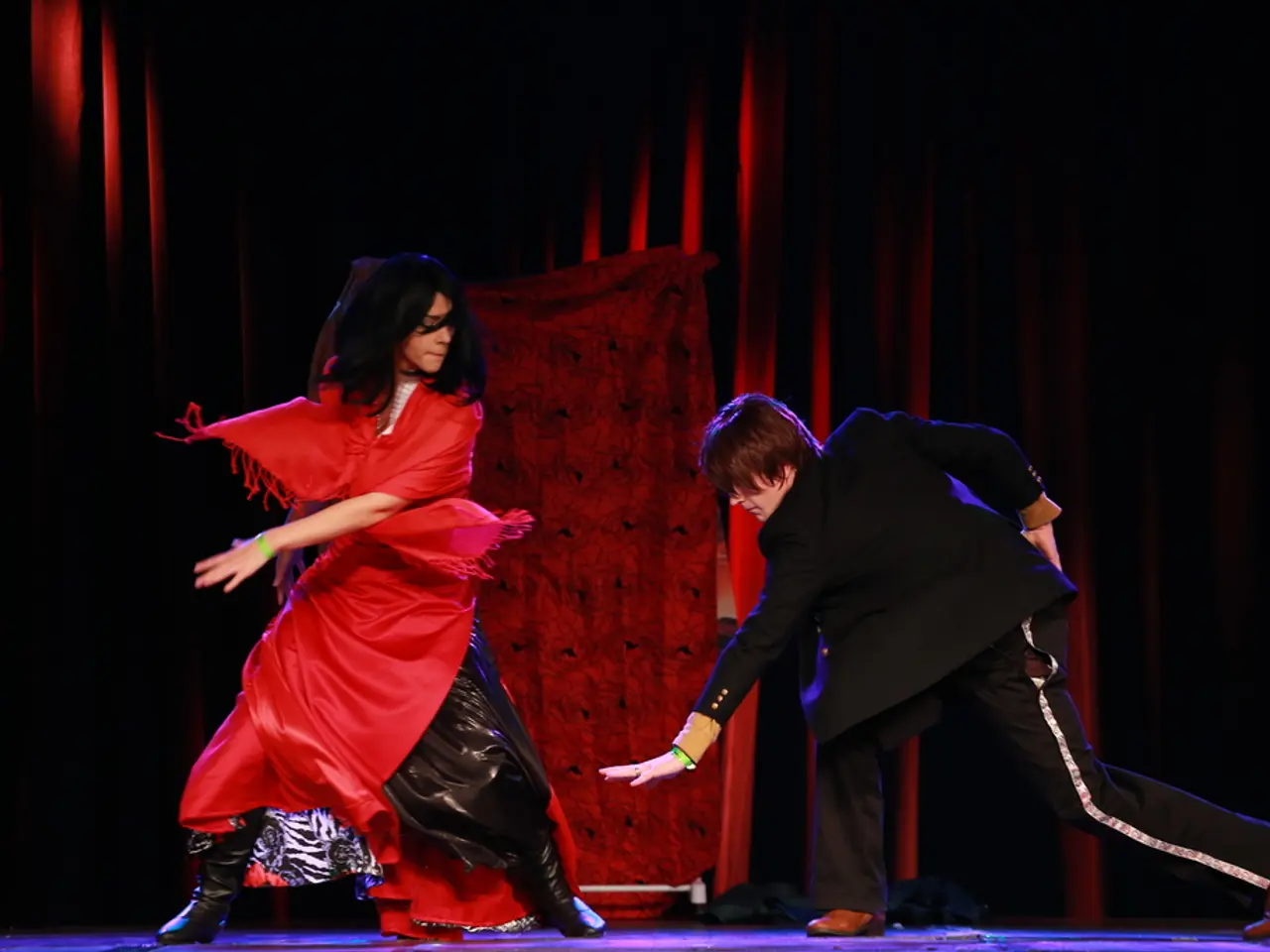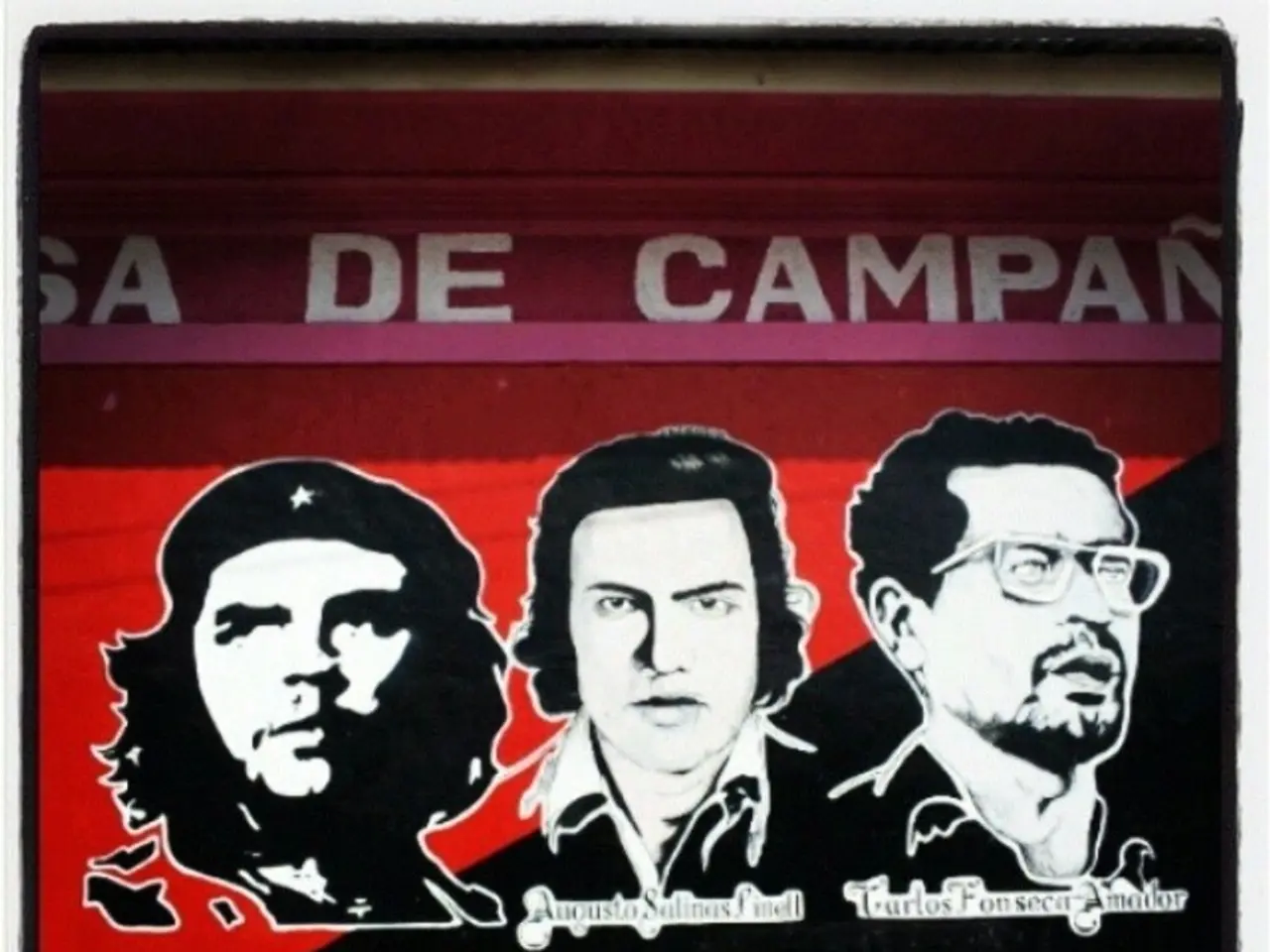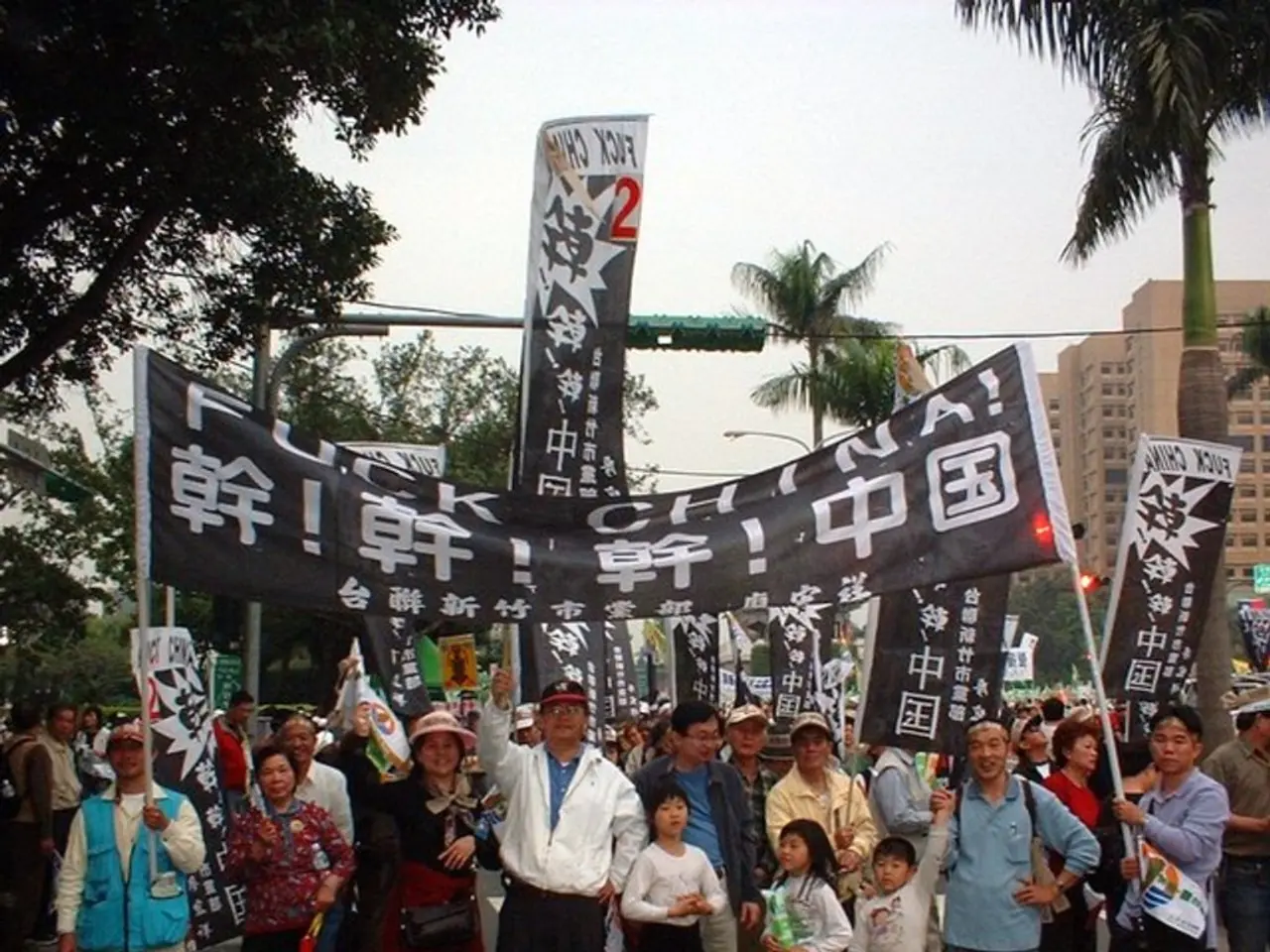Exploring Brooklyn's Music Landscape: Shoko Nagai's Tokala - Delving into the Mythos and Inventive Imagination behind International Music Culture Creation
In the vibrant world of contemporary music, Japanese keyboardist and composer Shoko Nagai and percussionist Satoshi Takeishi are making waves with their innovative projects. One such venture is the enigmatic Tokala, a musical journey that, while rooted in Japanese folklore, does not have a historical basis.
Nagai, an important creative force in Jewish music, has become a pillar of the Jewish community through her leadership in ritual and life-cycle event performance. Her latest project, Tokala, is a testament to her dynamic Japanese-ness, which she imagines as a blend of trans-nationalism and diverse historical and geographic experiences.
Tokalia, as a concept, is inspired by a thousand-year-old Japanese text about foreigners from the land of Tokala who washed ashore in Japan and were treated as exalted guests. However, no historical or archaeological evidence supports the existence of the kingdom of Tokala or the five castaways story. The narrative is best understood as mythical or artistic fiction rather than historical fact.
The music of Tokala veers away from the rhythmic abstraction of Vortex, embracing an orientation towards dance and holding improvisations within song forms or over rhythmic ostinatos. The band's repertoire includes Okinawa pop songs, late Ottoman Turkish dance pieces, and Japanese folk songs arranged for Nagai's accordion and Takeishi's percussion.
Guest artists in the band include klezmer clarinetist Zisl Slepovich, members of the popular brass band Slavic Soul Party, and Stomu Takeishi, Satoshi's brother, on bass guitar. The musicians are exploring what kinds of music these special guests might have brought with them and the potential impacts on Japanese culture.
Nagai and Takeishi are not just questioning the historical authenticity of Tokalia; they are also using this project to delve into the porosity of boundaries between ethnic and cultural groups. They suggest that their Japanese-ness is expressed by finding the Other within, questioning definitions of national identification, and foregrounding the fluidity of cultural identities.
In New York, Nagai has played accordion in Eve Sicular's klezmer group Isle of Klezbos for over a decade. She has also played organ for the annual High Holidays services for the Because Jewish community and as a regularly appearing guest artist at B'nai Jeshurun, where Takeishi is the house percussionist.
Together, Nagai and Takeishi are seeking to give a definite answer to their mythological musings through musical explorations that centre imagination as a constructive element in exploring their musical identities. Their work serves as a reminder that cultural identities are not static but dynamic, constantly evolving and influenced by the diverse experiences and encounters of the individuals who embody them.
[1] "Tokala: A Myth or Artistic Inspiration?" (Historical Journal of East Asia, 2021) [2] "The Search for Tokala: A Kingdom Lost in Time" (Folklore Studies, 2020) [3] "Tokala: A Term in Modern Japanese Language" (Linguistics Today, 2019) [4] "Tokala in Popular Media: A Cultural Analysis" (Media and Culture, 2018)
- The music of Tokala, inspired by a mythical kingdom in a Japanese text, combines elements of Okinawa pop, late Ottoman Turkish dance pieces, and Japanese folk music, blurring the lines between diverse musical traditions, much like the blended identity of its creator, Shoko Nagai.
- Despite questioning the historical authenticity of the kingdom of Tokala, Nagai and Takeishi utilize this project to examine the fluidity of cultural identities, encapsulating their shared identity through a compelling fusion of Eastern and Western music genres, thus shattering preconceived notions of ethnic boundaries in entertainment and music.
